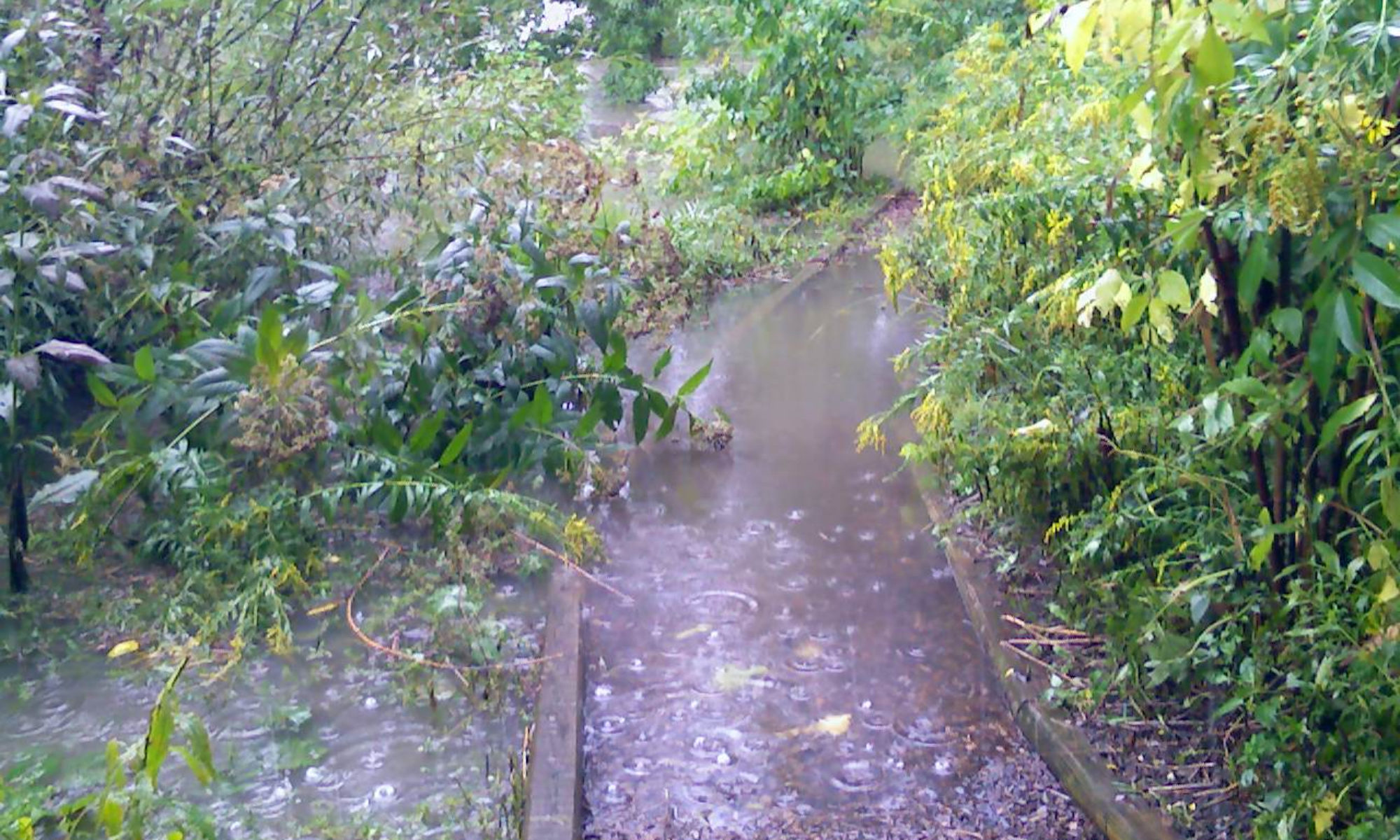i’ve been thinking about the notion of “commons” and it’s popped up in a number of conversations lately. here’s a quick explanation lifted from “Commons Not Capitalism,” a day 20 report posted about a month ago at OccupyPhillyMedia:
A commons is a simple idea really, and something that humans have done throughout our existence, even before we had languages, even before we made up the word “commons” in multiples languages. A commons is something held by people in common, to be used, shared, and enjoyed. It can be a physical space, like a field for grazing or planting, or a library or park; it can be knowledge, like the ideas within our libraries or free and open-source software; it can be those things that sustain all of life, like the air and water; it can be some of the things that make us most human, such as dignity, love, caring, art, and our imagination.
i’d add to this culture, beliefs, agreements, like the common agreement we have in this country that it’s okay to protest and speak out, if done peacefully, or as is catching some press today, that America is not a battlefield.
in Open Space, the circle, bulletin board and “marketplace” in which participants move about, with the right and responsibility to maximize thier own learning and contributing, are all commons. and while i appreciate the focus on commons, setting it against capitalism might miss the point. capital is perhaps another sort of commons, or at least the parts that move and accumulate because of various commons existe and are accessible to all. “markets,” so often held up as dangerous are also commons.
the video above does a good job of telling this story in another way. it’s not as simple as any us against them, or this against that.

michael-jan,
thanks for this piece on the commons. as best as i can see, the center of gravity of the Occupy Process is not where Eisenstein’s reading of it.
I think with #OWS, however, we have the seeds of what it’ll take to move forward in a mass way, however people by-and-large are not there….yet.
One of our colleagues who we both know and respect has been wondering what will be the trigger, the spark that will mass-mobilize facilitators/process artists.
you’re a lot closer to the conversation than i am, raffi. the whole thing seems to teeter on the edge between showing up in ways that the old system understands and showing up in ways that embody and demonstrate what a new system would be like.
i’ve wondered why, for instance, it’s been so important to camp out and occupy. seems the new system must have an element of rapid response, immediate polling, and other practices that would be better embodied and demonstrated by flashmob sorts of gatherings. more innovations like the human microphone. we have the technology to very quickly convene meetings, occupations, classrooms and such online and in any physical location. why not use that to make occupying more accessible to many people?
as for the spark, i’d ask the question more broadly, cuz i’m not sure that the process folks you mention are any more important than anybody. i think the more interesting question is what might be done to make showing up more accessible to more and more people of all sorts. camping out is one kind of showing up. petitions are another. but showing up for a 2-hour learning and action-planning session is perhaps somewhere in between, more accessible than camping and more solid that a momentary signature. opportunities for shifting and coordinating spending decisions get even more interesting.
the current process seems focused on anchoring itself in many locations, but i’m more interested in what might be done to grow the flock and mulitply (temporary) roosting places. the anchors seem to be weighing down the movement.
miguel-jan, salam!
The question about why be attached to physical space is one i’ve had, too. there are a number of reasons why occupying physical space is important:
– it puts the issue of homelessness- in its many dimensions- front and center– including that many more of us can and will end up in the streets in the years to come
just camping out for a few nights with homeless people sleeping just a few feet away from me really was powerful. it can and does happen to anyone.
– reclaiming the space as commons
To be clear, I’m not for- as Lerner puts it- the “fetishization of public space.” That said, our public spaces have lost so much of their life that this shock injection of life may well be worthwhile…
As for mobilizing process artists, true, we are not more important than others– however i think we do come with more of a value of supporting and inviting *all* voices…and that capacity harnessed, engaged in synergistic way possibly could do some real magic, no?